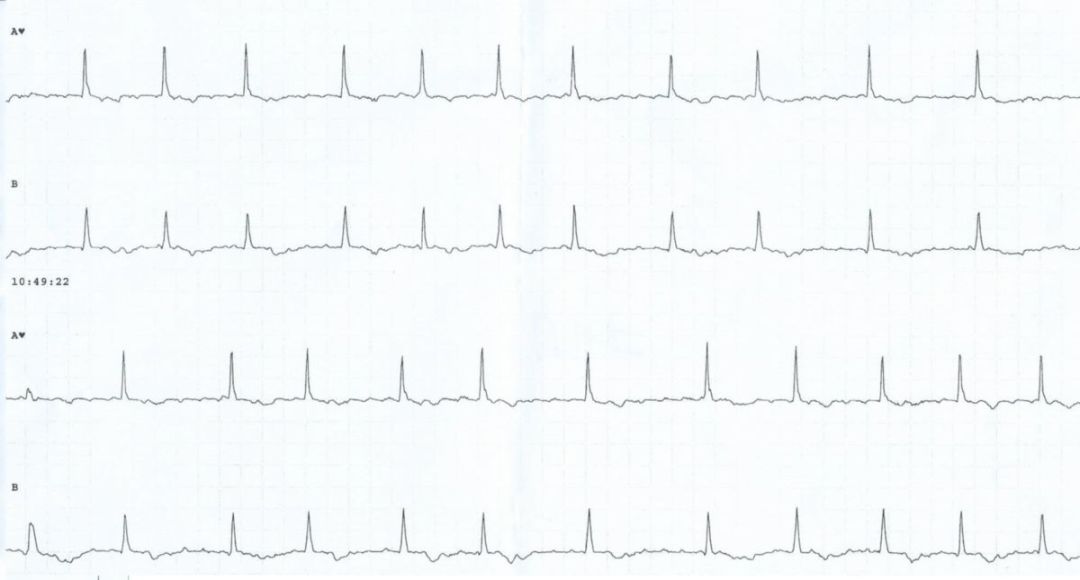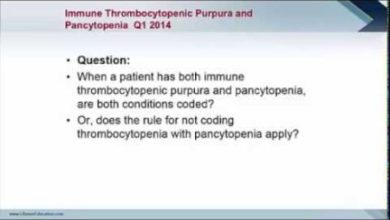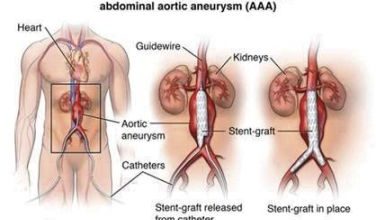Impact Of ICD-10 Coding On Hepatocellular Cancer Diagnosis And Treatment
What is Hepatocellular Cancer (ICD 10 C22.0)?
Hepatocellular cancer, also known as hepatocellular carcinoma, is a type of primary liver cancer that originates in the liver cells (hepatocytes). It is the most common type of liver cancer and is often associated with underlying liver disease such as cirrhosis. Hepatocellular cancer can be aggressive and difficult to treat, making early detection and intervention critical for improving outcomes.
Code Information
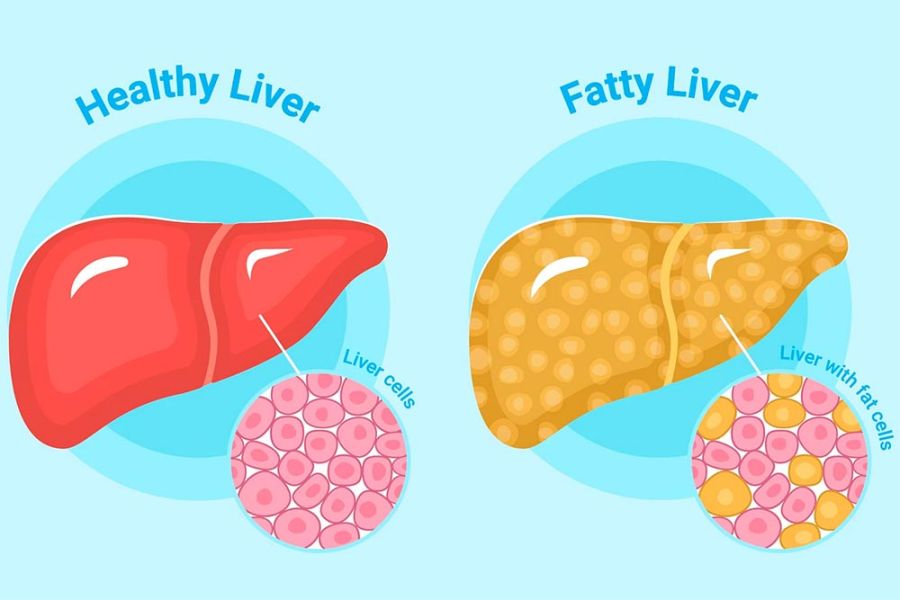
The ICD-10 code for hepatocellular cancer is C22.0. This code is used to classify and report cases of hepatocellular carcinoma for medical billing, research, and statistical purposes.
Diagnostic Related Groups (MS-DRG)
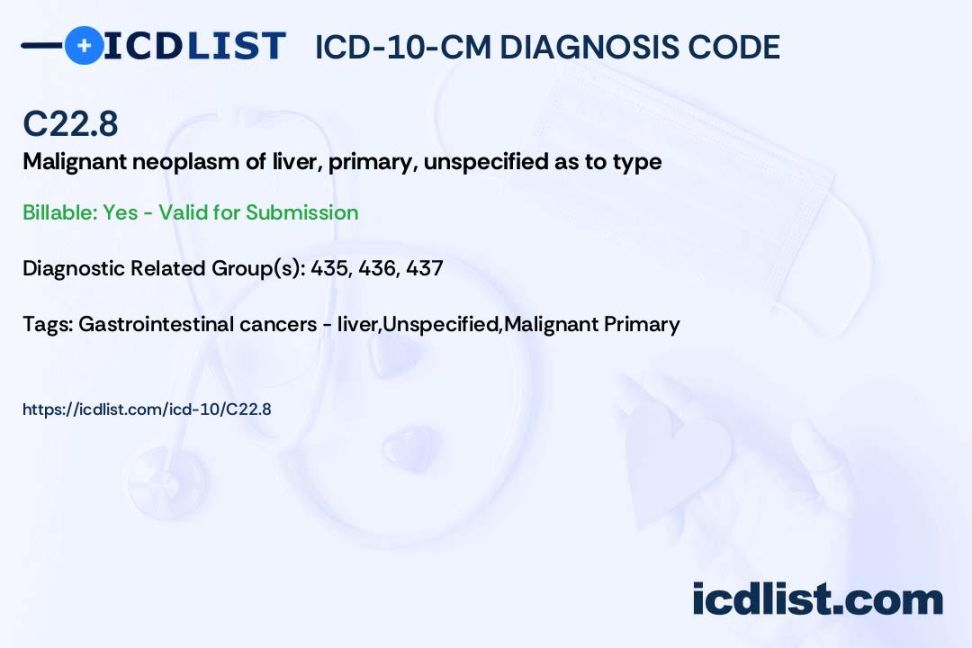
Hepatocellular cancer is typically classified under MS-DRG 435, which is Malignant Hepatobiliary Disorders with MCC (Major Complications and Comorbidities). This DRG is used to group patients with hepatocellular cancer for reimbursement and resource allocation purposes in hospitals.
Convert to ICD-9 Code
If you need to convert the ICD-10 code for hepatocellular cancer (C22.0) to the corresponding ICD-9 code, it would be 155.0.
Code History
The ICD-10 code for hepatocellular cancer (C22.0) was introduced in the 10th revision of the International Classification of Diseases (ICD-10) by the World Health Organization (WHO) in 1994. It replaced the previous ICD-9 code for hepatocellular carcinoma (155.0).
Approximate Synonyms
Some approximate synonyms for hepatocellular cancer include hepatocellular carcinoma, liver cell carcinoma, primary liver cancer, and HCC.
Clinical Information
Hepatocellular cancer typically develops in the setting of chronic liver disease, such as viral hepatitis, alcoholic liver disease, non-alcoholic fatty liver disease, or cirrhosis. Risk factors for hepatocellular cancer include chronic hepatitis B or C infection, heavy alcohol consumption, obesity, diabetes, and exposure to aflatoxins.
Causes
The exact cause of hepatocellular cancer is not fully understood, but it is believed to be a multifactorial disease with genetic, environmental, and lifestyle factors playing a role. Chronic inflammation and damage to the liver cells over time can lead to the development of cancerous cells.
Symptoms
Early stages of hepatocellular cancer may not cause any symptoms, but as the tumor grows, patients may experience symptoms such as abdominal pain, weight loss, jaundice (yellowing of the skin and eyes), fatigue, loss of appetite, and swelling of the abdomen.
Diagnosis
Diagnosis of hepatocellular cancer typically involves a combination of imaging studies (such as ultrasound, CT scan, or MRI), blood tests (including alpha-fetoprotein levels), and liver biopsy to confirm the presence of cancer cells. Staging of the cancer is important for determining the appropriate treatment approach.
Treatment
Treatment for hepatocellular cancer depends on the stage of the cancer, the overall health of the patient, and other factors. Options may include surgery (such as liver resection or liver transplant), ablation therapy, radiation therapy, chemotherapy, targeted therapy, and immunotherapy. Palliative care may also be recommended to manage symptoms and improve quality of life.
Conclusion
Hepatocellular cancer is a serious and potentially life-threatening disease that requires timely diagnosis and appropriate treatment. Understanding the risk factors, symptoms, and diagnostic approaches for hepatocellular cancer is essential for improving outcomes and quality of life for patients with this condition.
FAQs
1. What are the risk factors for hepatocellular cancer?
Risk factors for hepatocellular cancer include chronic hepatitis B or C infection, heavy alcohol consumption, obesity, diabetes, and exposure to aflatoxins.
2. How is hepatocellular cancer diagnosed?
Diagnosis of hepatocellular cancer typically involves imaging studies, blood tests, and liver biopsy to confirm the presence of cancer cells.
3. What are the treatment options for hepatocellular cancer?
Treatment options for hepatocellular cancer may include surgery, ablation therapy,




